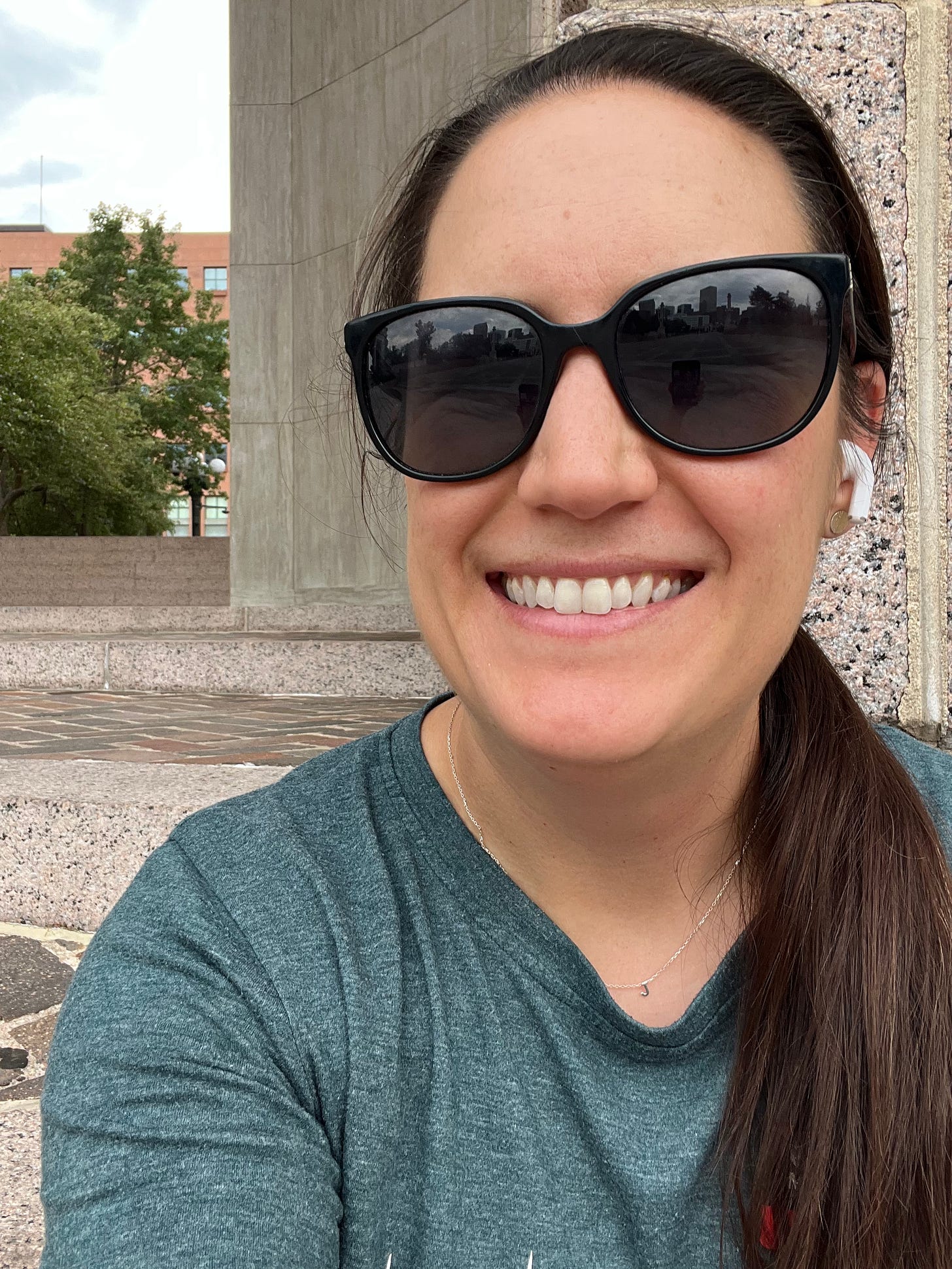Lessons from a half-failed experiment
Think Week, Revisited: What Happened When I Tried to Step Back
Well, I did it.
Sort of.
If you remember, a couple of months ago, I announced I was taking a Think Week—three full days set aside just to reflect, dream, and think deeply about my practice (and life). No client work. No Zoom calls. No laptop. Just me, a notebook, some long walks, and a lot of white space.
At least, that was the plan.
Here’s what actually happened and what I learned from the parts that worked and the parts that didn’t.
What went well:
I stayed local. I wandered around the Denver Art Museum, walked through one of my favorite parks in the city, and sat in a few quiet corners of my neighborhood with a notebook. It was peaceful. I listened to podcasts. I journaled. I engaged with beauty. That kind of creative stimulation did exactly what it was supposed to do—it made me feel human again.
And the weirdest part?
Once I slowed down enough to tune in, I realized…I’m actually pretty content with where things are.
No big pivots. No wild revelations. No major changes to roll out.
In a culture that screams “grow, grow, grow” all the time, it felt a little radical to admit:
I like my business. I don’t want to expand it. I don’t need to scale anything right now.
What didn’t go so well:
I didn’t fully unplug. I wish I could say I followed my own advice about prepping for Think Week as if it were a vacation, but I didn’t. I still had emails and drafting work lingering in the background—and I ended up doing about a days’ worth work over the three days.
If I’m being honest, I was disappointed in myself. But also? It was eye-opening.
Even when I had permission to slow down, it was hard. I found myself wanting to take every idea that surfaced and immediately act on it. My default is do, build, move. But Think Week asked me to pause. Just think. That was uncomfortable. Really uncomfortable.
It made me realize just how addicted to output I’ve become.
The insight that surprised me most:
I thought I was carving out time to make big decisions. To map out what’s next.
But the real clarity came from what I didn’t do.
There was nothing I wanted to overhaul. No urge to double revenue. No “aha” moment about a brand-new offer.
The clarity came in the quiet. The message was simple, and a little humbling:
You don’t need a new strategy. You need more stillness.
Not a sabbatical. Not a vacation. Just more consistent, bite-sized moments of rest.
So, would I do it again?
Yes—but differently.
I don’t think I need another three-day Think Week at home while juggling life and work.
What I do need? Monthly Think Afternoons.
A few hours carved out with no agenda. A walk. A blank notebook. A podcast or a visit to the museum. That’s enough to refill the tank, reconnect with what matters, and reset my nervous system.
And if you’re a solo juggling the weight of running a whole business on your own—I’d argue you probably need this too.
Not because you’re doing it wrong. But because the way you’re doing it might be squeezing out your best ideas. And your peace of mind.
TL;DR — My advice if you’re considering a Think Week:
Don’t romanticize it. It’s not a productivity hack. It’s a permission slip.
Plan like it’s a real break. Unplug intentionally, or the work will creep in.
Start smaller. A Think Morning or a solo walk can be just as powerful.
Don’t expect revelations. Sometimes clarity is just remembering what you don’t need to change.
Here’s your invitation:
📅 Block off a single Think Afternoon.
💭 No calls. No client work. Just space to sit, reflect, and be.
🪞You might be surprised what surfaces when you stop trying to figure everything out.
You deserve to hear yourself think.
Cheering you on (in motion and in stillness),
Lauren
P.S. If you’ve ever tried something like this—or want to—I’d love to hear about it. Comment and let me know what came up for you. Let’s normalize stepping back without guilt.



